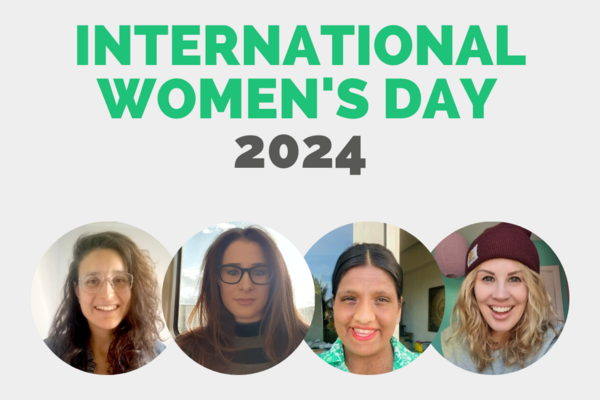The perpetrator sector is unique, in that a great number of the people delivering and leading the work are women, and the majority of service users are men. The work is incredibly specialist, and can be emotionally complex and challenging for the highly skilled workforce delivering it. So why do women do this work? Why is it important for them to be at the centre of this sector?
To celebrate International Women’s Day, we spoke to four women working at Respect about how they joined the sector, the challenges they’ve faced, and why they think women need to be at the forefront of this work.
Olga Trilla Rodriguez, Data and Performance Manager on the Make a Change project, thought her physics degree and skillset meant she wouldn’t fit into a charity sector role, but she soon found that the sector’s need for data and evidence is greater than ever. Learn how she used her technical brain and passion for social justice to find her niche at Respect.
Katy Mutemi, our Training and Development Manager, tells us about her journey from the Probation Service to the perpetrator sector, and explores the vital role women play in facilitating perpetrator interventions.
Amy Hewitt, Practice Advisor on the Drive Partnership, told us about how her move into the perpetrator sector was influenced by survivor voices, and how her immersion in the domestic abuse sector has shaped her approach to parenting.
Tina Patel, Head of National Systems Change on the Drive Partnership, spoke about the importance not only of having women in the sector, but also of having diversity within that group and ensuring we all feel included, heard, and listened to. In her blog, she touches on her team’s co-design work with people from minoritised communities, and the importance of seeing role models from your own commmunity.









